News
Interview with Michael Grosicar from Redback Promotion
Redback Promotion has turned out to be a very reliable constant when it comes to exquisite black and death metal concerts and festivals in the Ruhr Area, Germany and also across Europe and lately also overseas. Promoting popular bands like Slaughter Messiah, In The Woods and many more they cannot be overlooked in the scene. I had a lot of times the honor to attend gigs promoted by Redback and to know the staff and so I thought it would be cool to look a little bit more behind the scenes of the company. By a funny coincidence I stumbled over their boss, Michael Grosicar in a local brewery so we figured out an interview appointment. A few weeks later we had a nice Zoom meeting and I guess that you might be interested how such a company works and who is the man behind all that. Enjoy reading and hope to see you local readers at The Heretic March in Oberhausen next year!
Michael

Hi Micha, how are you doing?
All fine here, thanks!
Let's start with the history of Redback Promotion. I have read that you were in Australia and established some contacts there and when you returned back home to Germany you got the idea to do something, if I recall it correctly.
This is only part of the story. I founded Redback in 2007, but my journey into organizing gigs started long before that. I organized my first major event, the Ultima Ratio Festival, in Essen around 2004 or 2005. After that, I moved to Australia, where I encountered the redback spider quite frequently. During that time, I spent a lot of time contemplating my future plans for when I returned home. Ultimately, I decided to establish a booking agency. I wanted to take my passion for organizing gigs a step further by also booking bands.
Things moved quickly from there. When I officially founded Redback, I signed my first bands—Obscurity and Helrunar. In 2009, I organized my first major nightliner tour, which featured Kampfar, Vreid, and Iskald. That tour was significant as it marked the first time I arranged a nightliner to travel across Europe. Following that, I began freelancing for a larger agency, while still working with Redback and representing my bands through them. Eventually, I transitioned to another agency in Austria, but that company was dissolved by the owner. As a result, I brought all my bands and agents back under Redback's umbrella and focused on growing the agency once more. Today, Redback represents around 30 bands.
So this all runs under your name and you are not involved into anything else? I was pretty confused when I wrote with Ana, the organizer of Odyssey To Blasphemy and actually I don't got it still – did you do this gig together (Master's Call) or what happened there?
She organized a tour in which one of my agents was involved. Together, they arranged different shows for that tour, creating a collaborative effort. This type of cooperation is something we do frequently. We often partner with other agencies, and we will be doing so again for upcoming tours with Malphas, Kawir, and Merrimack. In that case, I also assisted by booking some of the shows.
How long did you stay in Australia and what did you do there?
I stayed in Australia for a little over a year after I grew tired of Germany and the typical German lifestyle. I packed my belongings, booked a flight, and purchased a one-way ticket with an open return. At that time, I wasn't sure if or when I would return, so I sold everything I owned—everything you accumulate in your early 20s. I was still living at my parents' house and sold all my instruments and nearly everything else before leaving for Australia. This was about two years after completing my training as a chef in Germany, a qualification that acts almost like a second passport. As a German chef, I could find work anywhere in the world, and that's exactly what happened in Australia. I earned well there, working as a kitchen manager in large hotels in my early 20s, where I received free accommodation, meals, and a great salary.
But nevertheless you decided to do booking and stuff – is this your main profession or is it more some kind of part-time job?
When I initially established Redback, it was a small operation, but it grew quickly. It might have grown even faster if I hadn't felt the need to maintain a regular job for financial stability. I always had a reliable income, and over the years, I never felt comfortable completely letting go of that security. Everything I earned beyond that was a bonus, and after some time, it felt like I was earning two salaries, which worked very well.
When I founded Redback, I made a commitment to keep everything under my control. This means maintaining a personal relationship with the artists, rather than treating them as just another client, as many other agencies do in Europe. My agents also have regular jobs, which is important to me. Because they aren't dependent on Redback for their income, they're not motivated by financial pressure and can focus on the quality of their work without being constrained. Of course, everything is still handled professionally, but they don't need to worry about every penny.
Another key factor is the long-term relationships we have with our artists. For example, Obscurity returned to us after a brief detour, and now we are very close friends. Marc, their vocalist, lives just a few miles from me, and many strong friendships have formed through this work. This is especially important in our industry, where many musicians are hobbyists, not professionals. They have lives outside of their music, just like we do, and I believe that having this understanding is crucial. I'm not upset if a band has to cancel a gig because their vocalist is spending time with their family or on holiday.
This philosophy has worked well for me and has allowed Redback to evolve from a small business to a full-time job that even out-earned my regular job before the pandemic. Just before COVID hit, I had planned to quit my regular job and focus entirely on Redback, but when the pandemic arrived, I was grateful to still have the stability of my regular job and income.
Since March, I've been working for an IT company while still managing Redback. I was actually on tour with L'Âme Immortelle when I got a call from the manager of the IT company. He already had a clear understanding of what I could bring to the table, and after a personal interview, he handed me a small white sheet of paper outlining the salary offer. Now, I work 35 hours a week as an application developer in the IT industry, but Redback continues alongside my IT career.
During the 1.5 years when I focused solely on Redback, I intentionally kept it from growing too large so that it would remain manageable. During the COVID pandemic, I faced significant challenges, particularly in sourcing merchandise for our artists. Global supply chains collapsed, and many companies were forced to close or went out of business. To overcome this, I started producing merchandise in Eastern Europe, where it was more cost-effective than in Germany. However, due to the disruptions in sales routes and the closure of many companies, I ended up founding another company, which has been operating successfully for nearly a year now.
That's cool – so you do produce the merchandise for all the bands you have in your roster?
Not every band, but a select few, including Nargaroth, Attic, Asagraum, and others not currently on our roster, like Thyfing. You can find more information by searching for Recoil Merchandise online. I researched printing companies and established my own distribution channels, including a dedicated webshop with storage facilities, from which I ship merchandise worldwide.
Haha, that is quite a lot! How many hours a day do you have??
To be honest, I built everything up during the first 1.5 years, and it was challenging to manage working 35 hours a week alongside all the additional responsibilities. I didn't have a clear structure in place, and there were times when my girlfriend would come to me after 16 hours of work, asking me to take a break and leave the office. It was a struggle, but I promised her I would get everything under control. Now, everything is running smoothly. As they say, happy wife, happy life.
How did you get the first bands for Redback? Did you just write to them and ask or how can I imagine that? I mean there are some bands that are more popular, so they probably had already somebody who promoted them….
It all started quite simply, much like how you're conducting this interview. I was working with Obscurity, though I don't remember the exact details. At some point, I reached out to them, and just two days later, I found myself sitting in their rehearsal room, telling them they needed someone to manage their shows. It wasn't a huge undertaking. There are plenty of festivals where you can build connections, and it's a bit like being a used car salesman—you knock on doors and ask around. If you genuinely believe in your product, it becomes much easier.
After a while, word of mouth began to spread, and I started receiving emails from bands looking for representation. To this day, that's how it works. I receive numerous emails every week, and I must admit, it's difficult to keep up with all of them. Occasionally, larger bands with established reputations reach out for assistance. Working with such bands is quite smooth, but newer bands, who need more time to develop, require a similar amount of attention. However, the impact isn't the same—though I don't mean that from a financial perspective.
Our role isn't to do promotional work for the bands per se, but rather to present our roster to festivals every year, network at events, and sometimes secure bookings through informal arrangements, like a handshake at something like the Inferno Festival. This is how Redback operates.
Currently, we are a team of seven people. Two are based in the UK, one of my best friends is located in Austria and also promotes the Kaltenbach Open Air, and I have two team members in Italy.
Talking about history – what was your first concert you attended to?
The companion of my best friend's mother back then was the brother of the former U.D.O. bass player. This goes back to the time when I was in school. We were invited to one of their shows, and I was actually taller than Udo Dirkschneider at the time (laughs). There's even a photo somewhere where he's standing on a crate of beer next to me, as I was about 7 or 8 years old and much taller.
Since I can remember, my parents have always listened to bands like The Rolling Stones, Dire Straits, and others. The first record I was ever given was Motörhead's Iron Fist, which I thought was incredibly cool, so I played it repeatedly. With my first pocket money, I went to a small record store in Ratingen, a village near Düsseldorf. I saw a huge Iron Maiden carpet there, and I was so mesmerized by the colors and monsters on it that the store owner came up to me and asked what I was looking for. I told him I was looking for a Motörhead album, but he put on some headphones and played me Iron Maiden instead. That was the first time I'd ever heard Maiden, and I walked out of the store with The Number of the Beast instead of my Motörhead album.
Haha, yeah – I think the first reminiscences listening to metal really commit to the memory. My first concert was At The Gates, Anathema and there was another band nobody knew and they also hadn't released an album so far….Cradle Of Filth. That was in the beginning of 1994 and my second one was Ancient Rites and Impaled Nazarene. That was really cool.
Ancient Rites and Impaled Nazarene? That's awesome!!
Yep, and I'm really looking forward to see them live next year at The Heretic March! So, tell me, which bands would you say, are the biggest ones on your roster?
That's a tricky question. What defines a "big" band? Is it their fee, the frequency of their performances, or the level of fame they have? Fame itself is quite relative. For example, Samsas Traum is well-known within the gothic scene. I also work with Aesthetic Perfection, who are currently on a U.S. tour with Lindemann, having toured Europe with them last year. Nargaroth enjoys a strong following, and In The Woods is still a significant name in the scene. Then there are newer bands like Attic, who play extensively and have gained considerable popularity. Obscurity is well-known in Germany, Austria, and Switzerland. Each band has its own level of recognition, but I'd say these are some of the biggest names in our roster. And of course, Vomitory!
Last question – which are you favorite albums?
Marilyn Manson – Antichrist Superstar is my all-time favorite album. I've been a big Manson fan, and although he has released some weaker albums over the years, this one remains my favorite. He's one of the biggest artists for me. Another album that had a huge impact on me back then was Stormblast by Dimmu Borgir, which introduced me to black metal.
When it comes to newer albums, it's a bit of a mixed experience. In the past, there was something special about looking forward to physical releases and holding them in your hands, which feels different now. Of course, The Number of the Beast by Iron Maiden was also incredibly important to me. I also enjoy Pink Floyd, Dire Straits, and Bruce Springsteen. These are the essential albums I had to own in physical form. I can still vividly remember the covers of all these records, and they hold a special place for me. While there's still great music being made today, these three remain my absolute favorites.
Sounds great, I feel the same. Thank you very much for your time, I hope to see you at The Heretic March latest!!
Thank you too!!
Latest Reviews
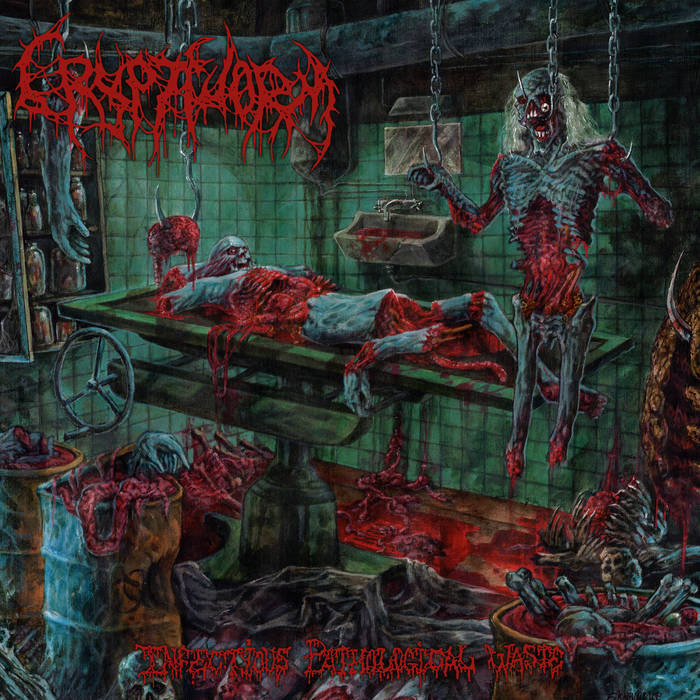 Cryptworm
(10)
Cryptworm
(10)
|
 Tailgunner
(7.5)
Tailgunner
(7.5)
|
 Cruel Force
(9.1)
Cruel Force
(9.1)
|
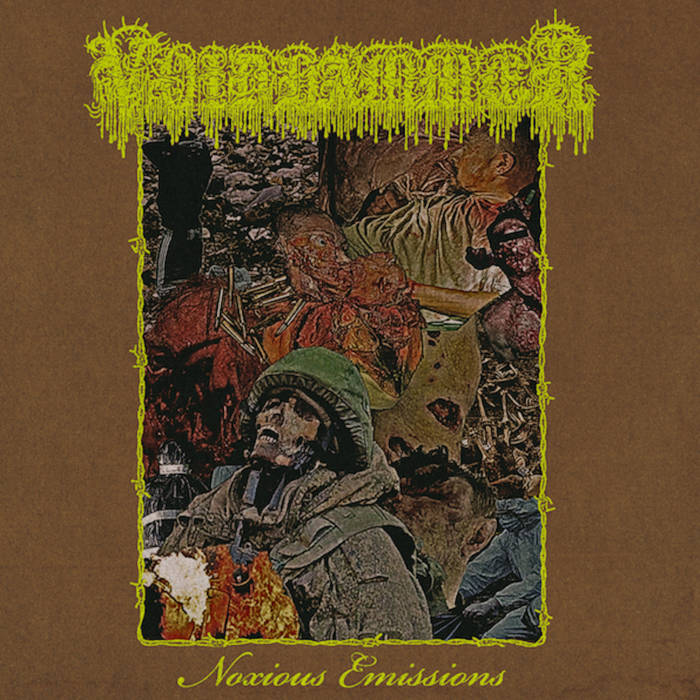 Voidhämmer
(8)
Voidhämmer
(8)
|
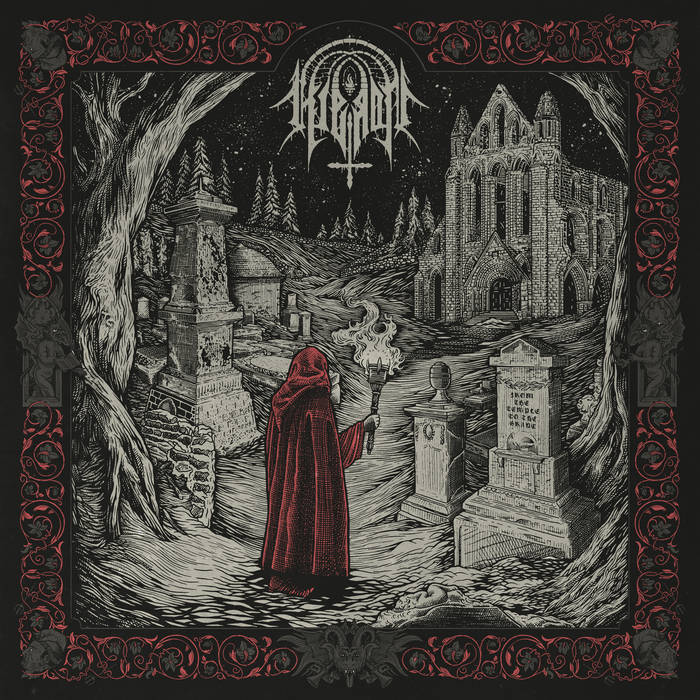 Hieron
(8)
Hieron
(8)
|
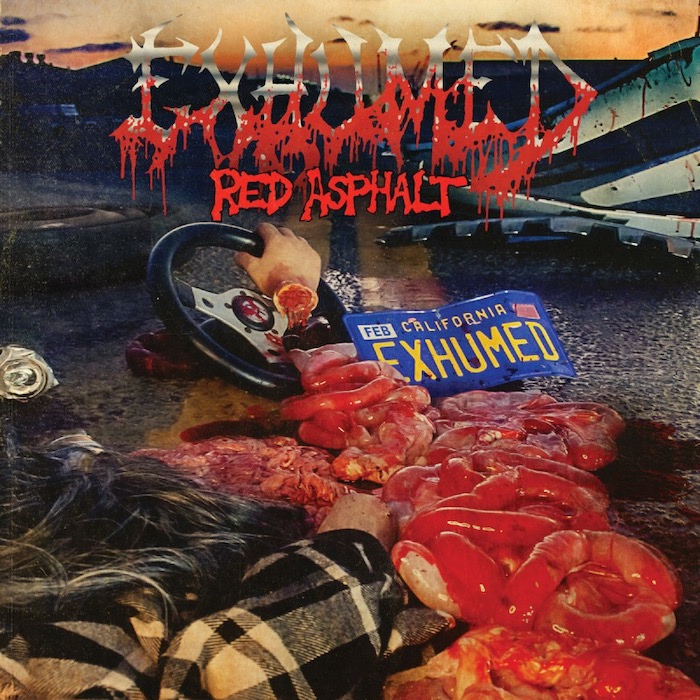 Exhumed
(9)
Exhumed
(9)
|
 Antrisch
(9.2)
Antrisch
(9.2)
|
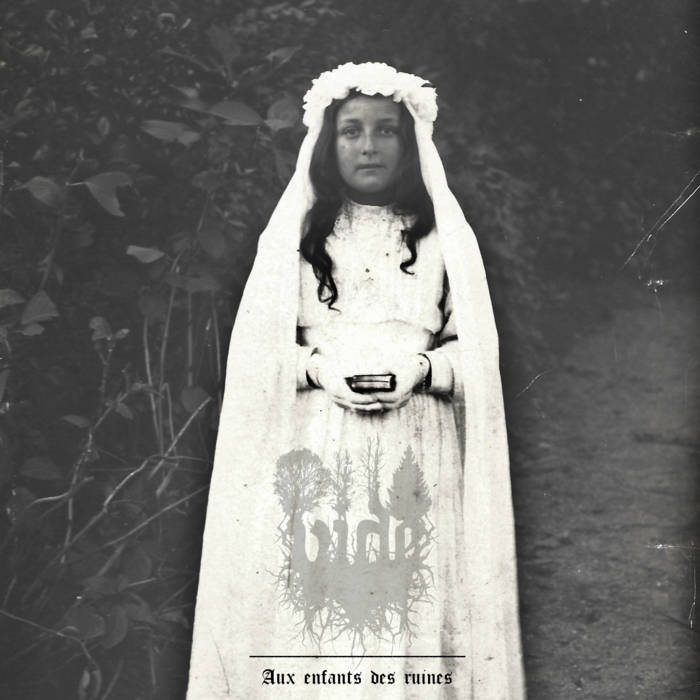 Vide
(8)
Vide
(8)
|
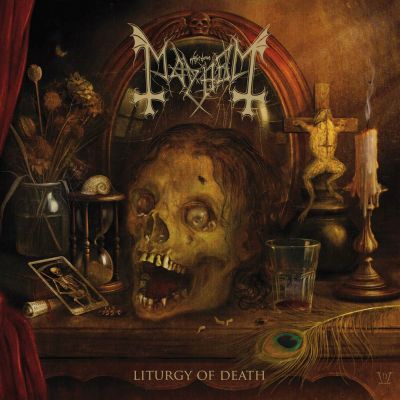 Mayhem
(10)
Mayhem
(10)
|
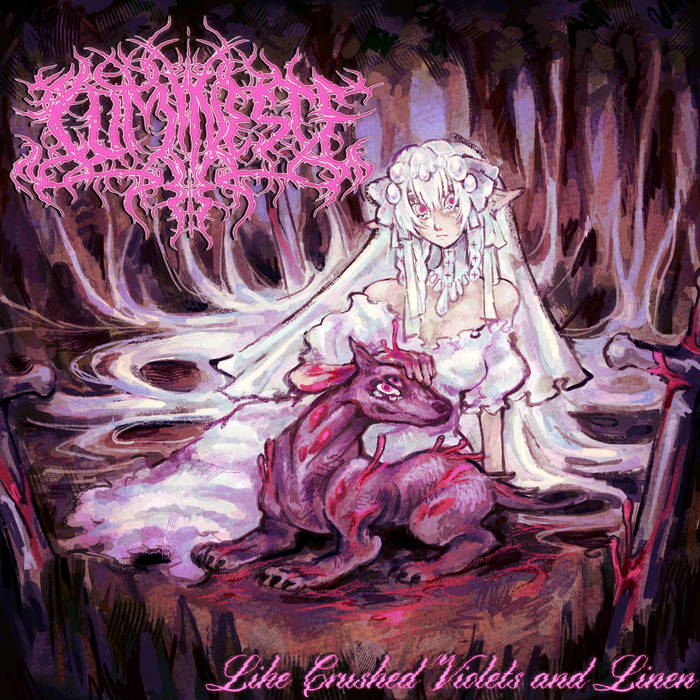 Luminesce
(10)
Luminesce
(10)
|
 Udręka
(8.6)
Udręka
(8.6)
|
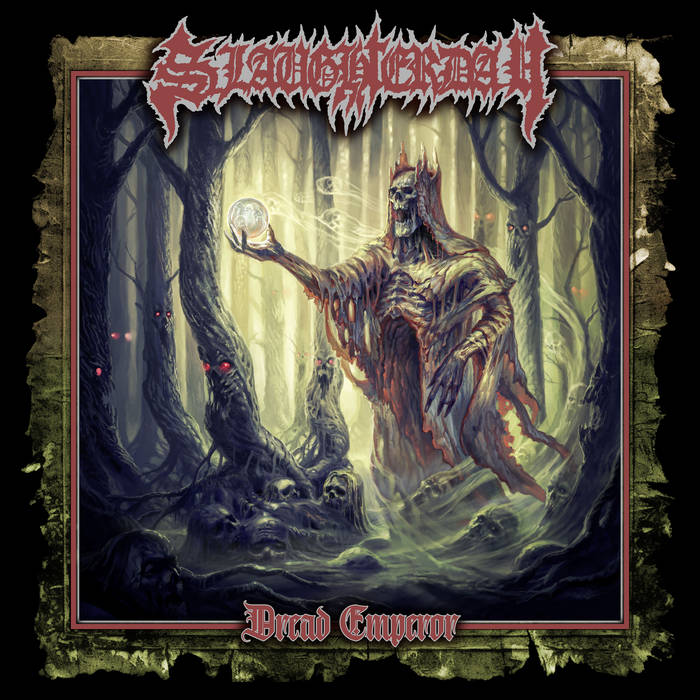 Slaughterday
(9.5)
Slaughterday
(9.5)
|
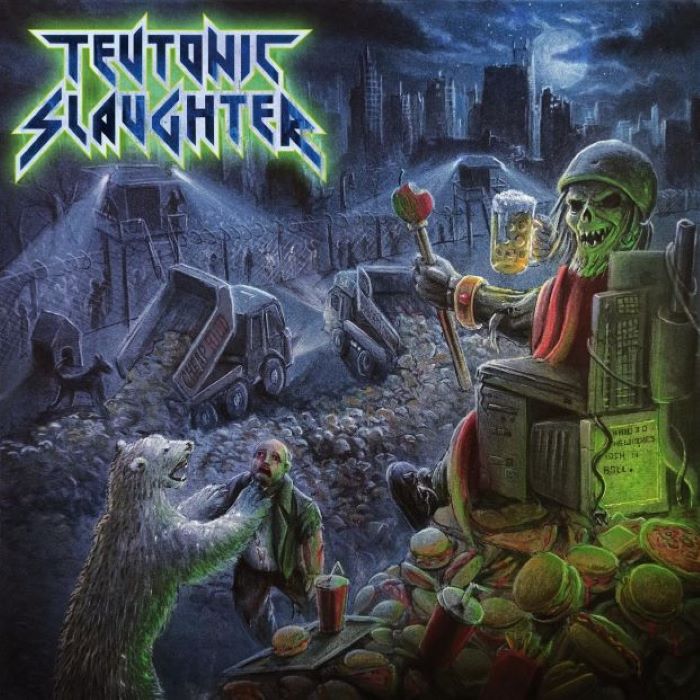 Teutonic Slaughter
(8)
Teutonic Slaughter
(8)
|
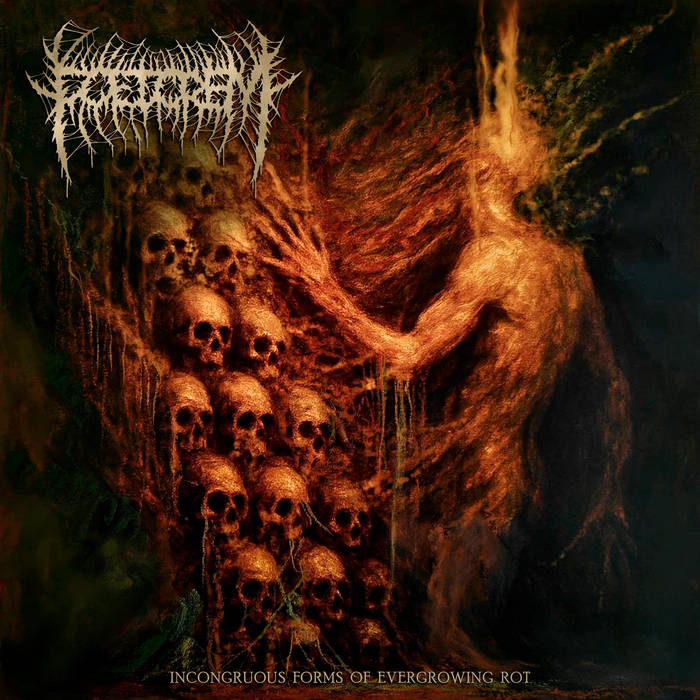 Foetorem
(8)
Foetorem
(8)
|
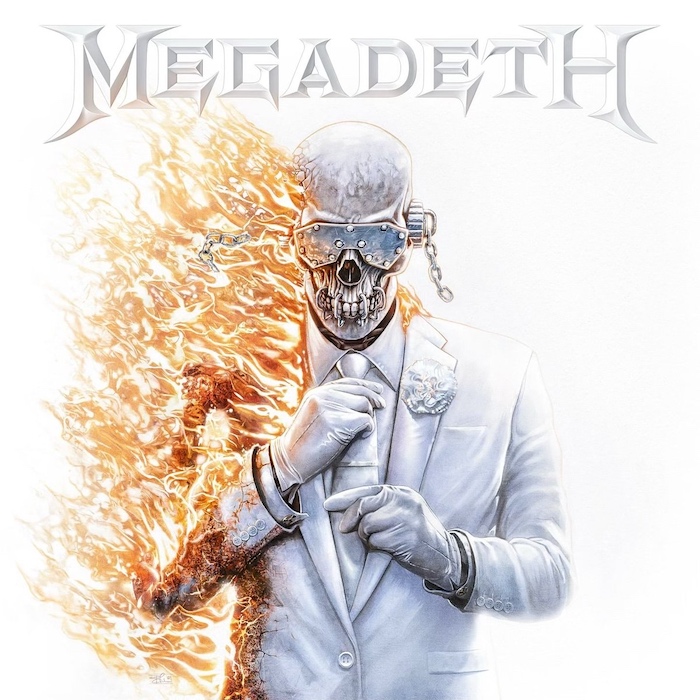 Megadeth
(9)
Megadeth
(9)
|
